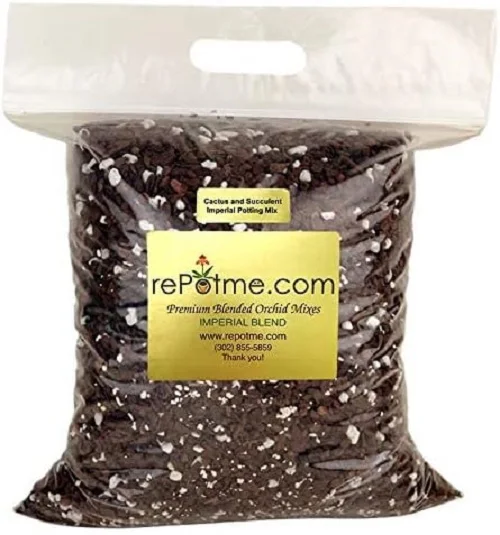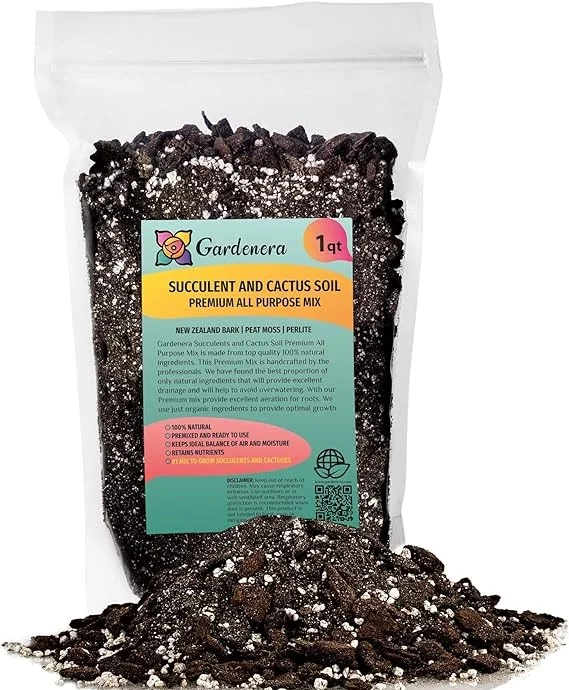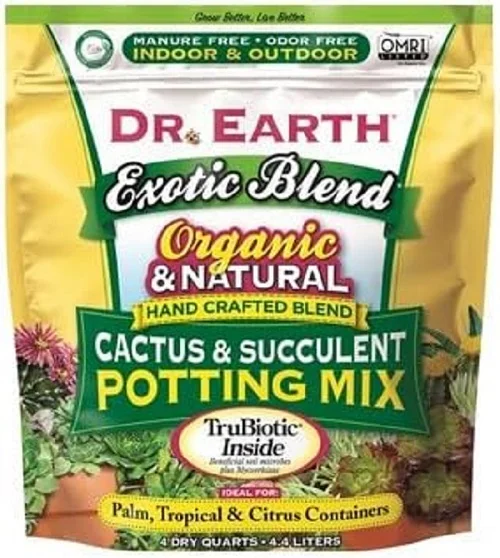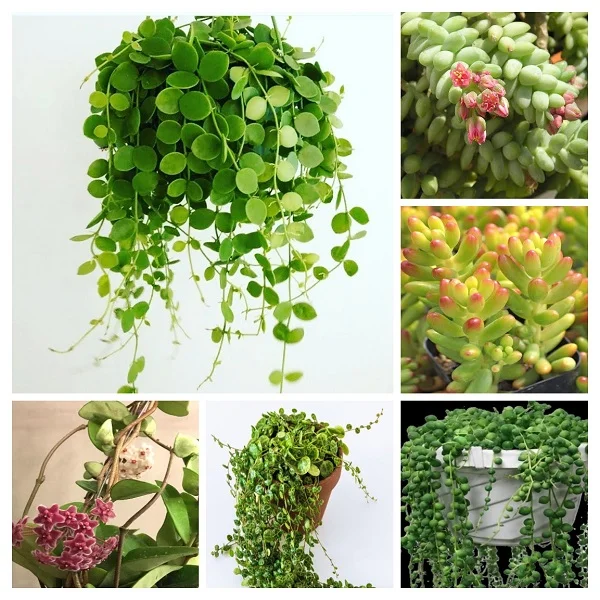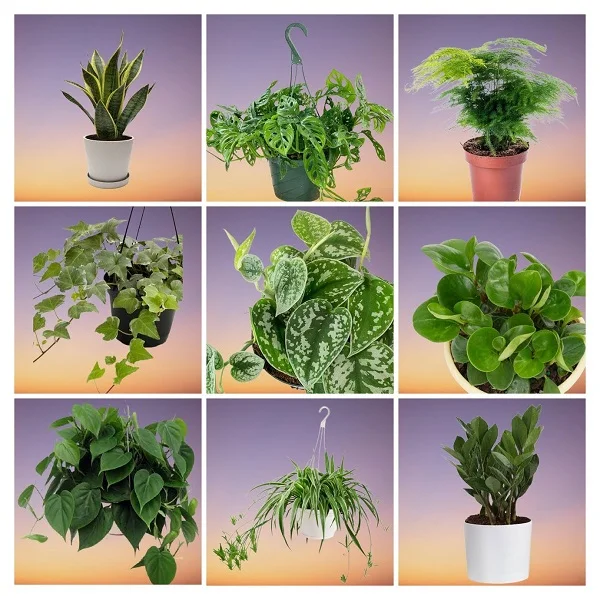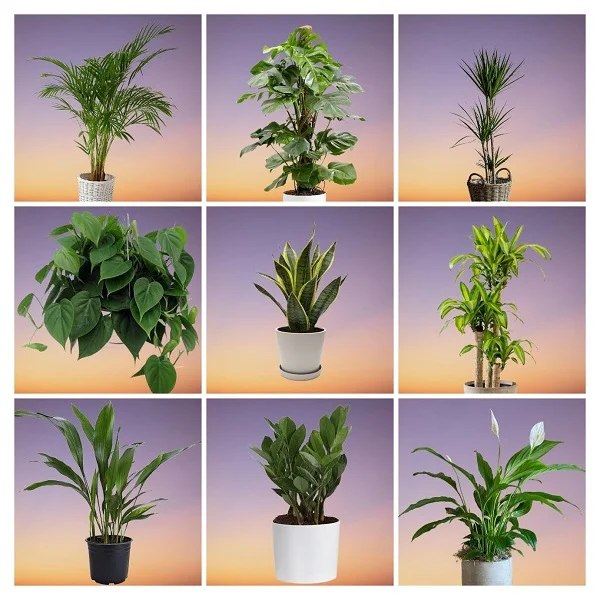Peperomia verticillata Red Log Care Indoors, Common Problems and Solutions
Some links in this post may be affiliate links
Peperomia verticillata Red Log grows best in bright indirect light, average warmth and humidity and moderately moist, rich, succulents soil coupled with monthly feeding in the growing season.
Red Log Plant is a popular low-maintenance, drought-tolerant houseplant. This guide will cover everything you need to know about growing and caring Peperomia verticillata indoors, from light and watering needs to soil, propagation, and common issues.
Peperomia Red Log Plant also called Whorled Peperomia, Red Log Peperomia or Belly Button is among the popular Peperomia varieties and bears fleshy, cupped, dark-green leaves with red wine-colored undersides.
At first the stems in Whorled Peperomia appear upright but eventually they spill over due to their own weight (weight of the leaves) and begin to trail or creep on the soil surface placing it among the popular trailing Peperomia varieties.
The stems and leaves in Peperomia Red Log are covered by thin hairs. The name ‘verticillata’ is derived from its fuzzy appearance arising from the thin hairs covering the stems and the leaves.
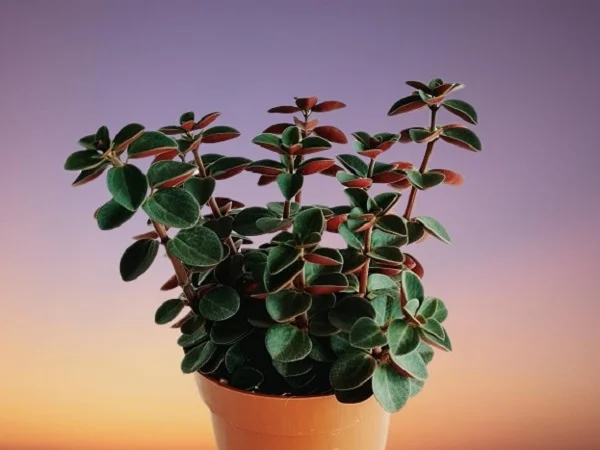
Botanical name: Peperomia verticillata
Family: Piperaceae
Common names: Red Log Plant, Whorled Peperomia, Belly Button, Red Log Peperomia, Peperomia verticillata Red Log
Origin
Peperomia verticillata is native to the tropical and subtropical regions including Cuba, Haiti, the Dominican Republic and Bolivia.
Size
Peperomia Red Log is a compact, evergreen, succulent plant which grows to a height of about 12 inches. Due to its small size, Red Log Plant is one of the best plants for the limited spaces in the home and office.
Flower
Red Log Peperomia flower is a greenish-white, panicle-like inflorescence. The plant is grown for its spectacular foliage as the inflorescence is inconspicuous.
Is Peperomia verticillata toxic to pets?
No. Peperomia verticillata is non-toxic to humans and pets. Red Log Peperomia is safe for cats, dogs and other pets in the home.
Why grow Red Log Plant indoors?
- Unique foliage: It features striking green and red leaves, adding a bold contrast to your indoor space.
- Compact growth: It doesnot take up much space and is ideal for small apartments or office desks.
- Pet-friendly: Non-toxic to cats and dogs, making it a safe houseplant.
- Drought-Tolerant: Stores moisture in its thick leaves, making it forgiving if you forget to water.
Where to Buy
If you are looking to acquire the spectacular Red Log Plant for your collection, you may obtain the plant online from Etsy (Link to Etsy).
How to care for Red Log Peperomia indoors
To care for Red Log Peperomia indoors, provide bright indirect light (dappled light), average warmth of 15-260C, humidity of 50-55% and moderately moist, fertile, succulents potting mix coupled with monthly feeding in spring and summer.
Peperomia verticillata care requires regular pruning to keep it neat, minimize pest and disease infestations as well as rejuvenate growth. Repotting is only needed when the plant becomes pot-bound. Keep reading for more on these growing conditions and how to achieve them.
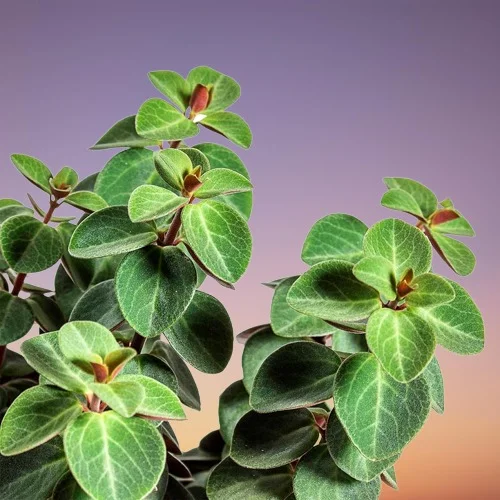
Potting Soil
The best potting mix for Red Log Plant is cactus and succulents soil as it drains easily preventing getting soggy soil which can lead to root-rot and death of the plant.
Water Requirements
Water your Peperomia verticillata liberally in spring and summer while allowing the top 2-3 inches of soil to dry out between waterings. Keep the soil moderately moist and avoid overwatering as it can result in yellow or mushy leaves.
Significantly decrease watering in fall and winter to keep the soil barely moist as growth is minimal at this time. Do not leave the soil to dry out completely to avoid soft or wrinkled leaves.
Use room temperature water to prevent cold shock which can result in stunted growth and death of the plant. Ascertain chlorine-free water to prevent browning leaf edges.
Make sure that the pot has a drainage hole to prevent the soil from getting soggy as it can lead in root-rot and death of the plant
Avoid wetting the foliage to minimize occurence of fungal disease; water from the bottom instead.
Light Requirements
Red Log Peperomia thrives in bright indirect light (filtered light). Keep it away from direct sunshine as it can cause scorching of the leaves.
Too little light will result in a leggy plant with wide spaces between leaf nodes and loss of the charming leaf color. You may grow the plant under a grow light if the natural light in your home is not enough.
Rotate the pot regularly to ensure that the plant receives light on all sides for even growth as well as prevent leggy growth.
Temperature and Humidity
Peperomia Red Log prefers an average warmth of 15-260C; a room temperature that is comfortable for you is good for the plant.
Keep the plant away from sources of drafts like windy doors and windows, AC units, stoves, hot air vents and others as they can cause stunted growth, wilting and leaf drop.
Red Log Peperomia prospers in a humidity of 50-55%. If the humidity is too humidity, it will result in brown leaf tips and edges. Therefore, to upscale humidity, use a wet pebble tray or a humidifier. Ensure good air circulation to minimize fungal diseases.
Fertilizer
Feed your Red Log Plant with a balanced, liquid fertilizer every 4 weeks in spring and summer for a lush growth.
Do not feed in fall and winter as growth is minimal and feeding at this time may lead to fertilizer burn and death of the plant.
Occasionally, leach out accumulated salts by running a stream of water through the soil until it drains through the drainage hole. Allow it to run for about 5-10 minutes.
Repotting
Repot Peperomia verticillata Red Log every 1-2 years in the beginning of the growing season (spring to early summer), only when the plant has become pot-bound. When the roots begin to grow through the drainage hole, it is time to repot.
Select a pot one size larger than the current one. Ensure that the pot has a drainage hole to avoid getting soggy as it can lead to root-rot.
It is preferable to use a terracotta pot as it is porous and allows water to drain faster which prevents the soil from holding too much water and becoming soggy. Take a look at these terracotta pots with saucer on Amazon.
Pruning & Grooming
Pruning Red Log Plant is easy as it involves regular removal of dead foliage to maintain the plant neat. It also discourages pest and disease infestations.
To encourage a bushy, compact growth, regularly pinch off the growing tips; snip the tips at a point just above a leaf node.
As the plant ages, it wil become straggly, therefore, cutback the leggy stems with a sharp, clean pair of pruning scissors during the growing season to rejuvenate growth.
Occasionally clean the leaves by damp-wiping with a soft cloth to get rid of dust and also discourage pest and disease infestations.
Peperomia verticillata Propagation
Peperomia verticillata (Red Log Plant) propagation is done from leaf and stem cuttings or by plant division at beginning of the growing season when the plant is actively growing.
Learn how to propagate Red Log Plant (Peperomia verticillata).
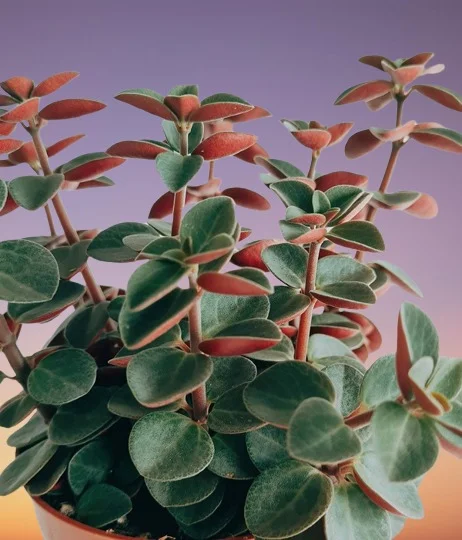
Peperomia verticillata Problems & Remedies
Red Log Peperomia problems include yellow leaves, dropping leaves, drooping leaves, pests and diseases among others. Keep reading for more on these problems, their remedies and solutions.
Yellow leaves
Some of the causes of yellow leaves on your Peperomia verticillata are inconsistent watering, soggy soil, nutrients deficiency or too little light.
How to fix it
Inconsistent watering: Water when the top 2-3 inches of soil feel dry but do not allow the soilball to dry out completely. Do not water on a schedule.
Soggy soil: Use a pot with a drainage hole and well-draining soil.
Nutrients deficiency: Feed the plant with a balanced, water-soluble fertilizer every 4 weeks in spring and summer.
Too little light: Place the plant in a brighter spot or use a grow light is the natural light is not enough.
Dropping leaves
Why are the leaves dropping on my Red Log Peperomia?
The leaves on your Red Log Peperomia are dropping due to inconsistent watering, soggy soil, too little light, temperature stress, use of cold water among others.
How to fix it
Inconsistent watering: Water when the top 2-3 inches of soil dry out but never allow the soil to dry out completely. Do not water on a schedule.
Soggy soil: Pot the plant in a pot with a drainage hole and well-draining succulents soil.
Insufficient light: Place the plant in bright indirect light or use a grow light if the natural light is not adequate.
Temperature stress: Keep the plant away from drafts emanating from AC units, heat sources, windy doors, drafty windows among others.
Use of cold water: Water the plant with water that is at room temperature to prevent cold shock.
Check out these 12 reasons Why Red Log Plant is dropping leaves and their solutions.
Drooping leaves
Drooping leaves on Peperomia verticillata are caused by direct sunlight, dry air, extreme temperatures, incorrect watering, pests infestations among others.
How to fix it
Direct sunlight: Keep the plant away from direct sunlight or use a light curtain to filter it out.
Dry air: Set the pot on a wet pebble tray, use a humidifier or group the plants together to increase humidity.
Extreme temperatures: Keep the plant away from sources of drafts like hot air vents, AC units, stoves, windy doors and windows among others.
Incorrect watering: Water when the top 2-3 inches of soil dry out and do not allow the soil to dry out completely. Do not water on a schedule.
Pests infestations: Regularly check underneath and between the leaves for these pests and carry out timely control measures.
Take a look at these 14 causes of Peperomia drooping leaves and how to fix them.
Pests
Common pests on Peperomia Red Log are scale insects, whiteflies, spidermites and mealybugs.
How to fix it
- Isolate the affected plant to prevent spread to other plants.
- Treat the plant with neem oil or insecticidal soap. Ensure to follow the manufacturers' instructions on the label.
- Regularly, check between and underneath the leaves for these pests and carry out timely control measures.
- Keep the plant well pruned to minimize the pest infestations.
Diseases
Peperomia verticillata is prone to the following diseases:
1. Leaf spot disease which is promoted by damp, stuffy conditions. It presents as brown, soft leaf spots.
How to fix it
- Isolate the affected plant and treat it with horticultural oil as per the manufacturer's instructions.
- Avoid wetting the leaves during watering to depress the occurence of the disease; water from the bottom instead.
- Maintain a good air flow for the plant to discourage the disease.
2. Root-rot disease which is enhanced by soggy soil. It is characterized by rotting, yellowing, lead drop and sudden collapse of the plant.
How to fix it
- Carefully slip the plant out of its pot and inspect the roots.
- Trim the brown-black, mushy roots and treat the healthy roots with a copper-based fungicidal solution as indicated on the label.
- Disinfect the pot with the fungicidal solution or use a fresh pot to repot the plant in fresh, well-draining soil.
- Do not water the plant immediately and keep it dry for 5-7 days before you can resume watering.
- Use a pot with a drainage hole and well-draining soil to prevent the soil from getting soggy.
- Cut down on watering in fall and winter as growth is minimal at this time; keep the soil slightly moist.
Conclusion
Red Log Plant (Peperomia verticillata) is a low-maintenance, compact, and visually striking houseplant. Whether you keep it in a small pot on a shelf or in a hanging basket, this plant is easy to care for and rewarding to grow.
By following proper watering, lighting, and propagation techniques, you can enjoy a healthy and thriving Peperomia verticillata for years to come!
Frequently Asked Questions
1. How do you take care of a Red Log Plant?
- Position your Red Log Plant infront of a brightly-lit window where it will receive bright light away from direct sunlight (filtered light).
- Provide your Peperomia verticillata Red Log with average warmth of 15-260C and keep it away from cold drafts.
- Grow the plant in neutral to acidic, fertile, moderately moist, succulents soil and keep the soil slightly moist in the cold season.
- Feed your plant monthly with a balanced, liquid fertilizer during the growing season but do feed in the cold season.
- Maintain an average room humidity as the plant has no need for extra humidity.
- Repot your Peperomia Red Log every 1-2 years during the growing season only when it is pot-bound.
- Regularly remove dead foliage to maintain the plant neat and also discourage pest and disease infestations.
- Regularly pinch off the growing tips to encourage a bushy, compact growth.
- Cutback the overgrown stems to rejuvenate growth and control growth of your plant.
- Regularly inspect your plant for any pests and diseases and take timely control measures.
2. How big does Red Log Plant get?
Under the right growing conditions, a Peperomia Red Log will grow to a height of 1 feet and approximately the same width.
3. What is the best soil for Red Log Plant?
The best soil for Peperomia verticillata Red Log should be neutral to acidic, well-drained and rich in organic matter. Most cactus and succulents potting mixes are perfect for this plant.
4. How do you propagate Red Log Plants?
Red Log Plant is easily propagated at the beginning of the growing season (spring) from leaf-cuttings, stem-cuttings or by plant division.
5. Where does Red Log Plant come from?
Peperomia verticillata Red Log is native to the tropical and subtropical regions including Cuba, Haiti, the Dominican Republic and Bolivia.
6. Why is my Red Log Plant falling over?
A healthy Peperomia Red Log will fall over the sides of the pot due the weight of the leaves. If the plant falling over and has thin stems and wide space between the leaf nodes (legginess), then the cause is too little light.
Trim the leggy stems and move the plant to a brighter spot where it will receive bright light or instal a grow light is the lighting is not adequate.
7. Why is my Red Log Plant dropping leaves?
Peperomia verticillata Red Log may drop its leaves due to various reasons which include incorrect watering, wrong temperature, too low humidity, poor lighting, poor feeding among others.
You liked it? Share on social media.
Related Content
Amazon Associates Disclosure
Homeplantsguide.com is a participant in the Amazon Services LLC Associates Program, an affiliate advertising program designed to provide a means for sites to earn advertising fees by advertising and linking to amazon.com.
